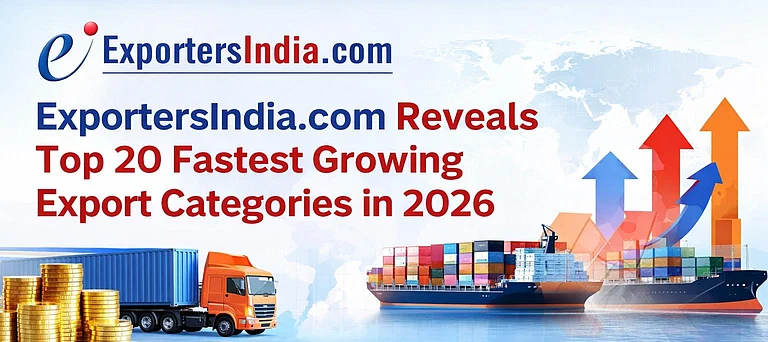Assiduus Global, founded by Somdutta Singh in 2018, is a cross-border e-commerce company. It offers full-stack AI-enabled middleware for digital distribution and supply chain management for brands, helping them accelerate sales across global marketplaces, including DTC platforms, reducing barriers to entry and supporting global growth.
1. Tell us about your background prior to starting your entrepreneurial venture.
Before building Assiduus, I had already gone through the full arc of spotting a market gap, building a tech solution, and exiting at the right time, twice. My first company was in ad-tech. We built a backend system that helped brands track customer behaviour and spend more intelligently. The idea came from watching marketers struggle to connect the dots, and solving it with simple, usable tech. That venture was acquired fairly quickly. Next, I turned to e-commerce. I launched a portfolio of direct-to-consumer wellness brands, selling in the US. I used marketplace APIs to study demand patterns, identified categories with high search and low competition, and reverse-engineered products to fit. It was about precision and consistency. I exited that business brand by brand. In parallel, serving on the NASSCOM Product Council gave me a broader view of the tech ecosystem. That shaped my thinking for what eventually became Assiduus.
2. What problem is your business solving and what is the current market size for your product/service
We help FMCG brands scale their online business across multiple marketplaces and countries, without having to build that capability in-house. When a brand wants to go global, the roadblocks pile up fast: logistics, local compliance, pricing strategy, platform partnerships, visibility, returns. We take all of that off their plate and run it end to end, from listing to last mile. Think of us as their cross-border growth engine. The overall global retail e-commerce market stands at around $5 trillion. Out of that, about $1.5 trillion is serviceable for marketplace-first brands. And within that, our target categories, where we’ve built the deepest capabilities, account for a $140 billion+ opportunity. Even capturing 10% of that puts us on track to become a billion-dollar company.
3. What has been the impact of your business in terms of customers served/products sold?
Assiduus today is the third-largest cross-border e-commerce accelerator in the world.
We’ve worked with over 200 brands, ranging from household names to fast-growing challengers. Across these partnerships, we’ve managed more than $1 billion in gross merchandise value. Our operations span 10+ online marketplaces across 5+ countries, including the US, Middle East, and India. But the part that matters most to me is what this enables for the brands we work with. Many of them were still heavily dependent on traditional supply chains. With our support, they’ve been able to expand faster, launch in new markets, and make digital their primary growth driver, without needing to build it all themselves.
4. In your view, is the demand for ultra-fast deliveries sustainable in the long run, or is it a passing trend driven by competitive pressures?
Ultra-fast delivery will survive, but only in select categories. Essentials like groceries, OTC meds, or baby products justify the urgency. For most other items, consumers care more about reliability than speed. The pressure to offer 10-minute delivery feels more like a competitive race than real consumer demand. Long term, the focus will shift to better planning, predictable slots, and sustainable fulfilment models, not speed for its own sake. Many consumers are willing to wait a little longer if it means better packaging, quality checks, or lower delivery fees. The novelty of speed fades quickly when it causes mistakes or poor handling. Plus, the cost of maintaining hyperlocal dark stores makes it hard to scale profitably across all categories. An interesting pattern we’re noticing is that speed becomes a retention tool only when the fundamentals are strong. If trust or quality is missing, faster delivery does not fix the experience. The future will favour players who get the basics right and apply speed where it truly matters.
5. How big is the quick commerce market currently, and what growth projections do you see in the next 3-5 years?
The quick commerce market in India is currently valued at around $3 to $3.3 billion, and it’s growing fast. In the next 3 to 5 years, it’s projected to cross $7 billion, with longer-term estimates reaching $18 to $20 billion by 2027. Most of this growth is concentrated in metro and Tier 1 cities, fuelled by digital-first behaviour and convenience-driven buying. That said, profitability will remain a challenge. I believe the winning models will be the ones that balance speed with unit economics, not just scale for growth’s sake.
6. Please explain how AI is the next step in the digitisation of the e-commerce sector.
E-commerce platforms hold massive amounts of customer, inventory, and behavior data. AI turns that data into real decisions, whether it's recommending products, forecasting demand, managing pricing, or automating support. What once took teams and manual effort is now handled by systems that keep learning and improving. For brands, this means faster decisions, better margins, and more personalized shopping experiences. At Assiduus, AI is deeply embedded in how we run operations, from demand planning to marketplace execution. I see AI not as a separate layer, but as the natural evolution of how e-commerce becomes smarter, leaner, and more responsive.
7. How do you see the role of women leadership evolving in the Indian startup ecosystem as you are an investor also?
More women are entering leadership roles across startups, but the gap is still wide. Less than 18% of Indian startups have at least one woman founder, and only around 2% of VC funding goes to women-led startups. As an investor, I actively look for women-led ventures and advocate for more inclusive funding conversations. The momentum is building, but we need stronger capital support and more women in decision-making roles to truly shift the landscape.
8. One piece of career advice for budding women entrepreneurs?
Trust your instincts and build resilience early. You’ll face bias and doubt. Don’t try to fit in. Focus on your customer, your product, and your edge. Let results do the talking. And remember, your journey opens the door for the next woman. That’s reason enough to keep going.


























